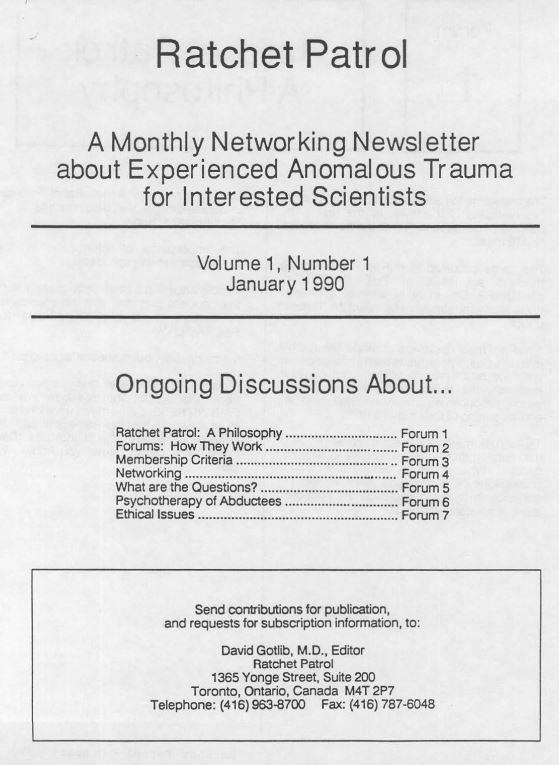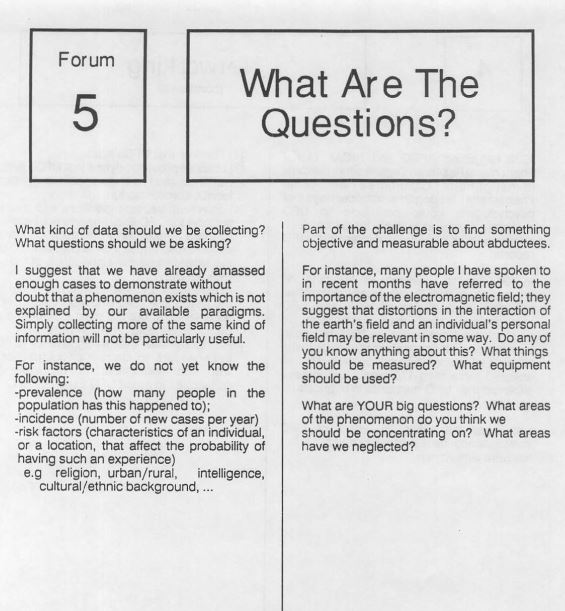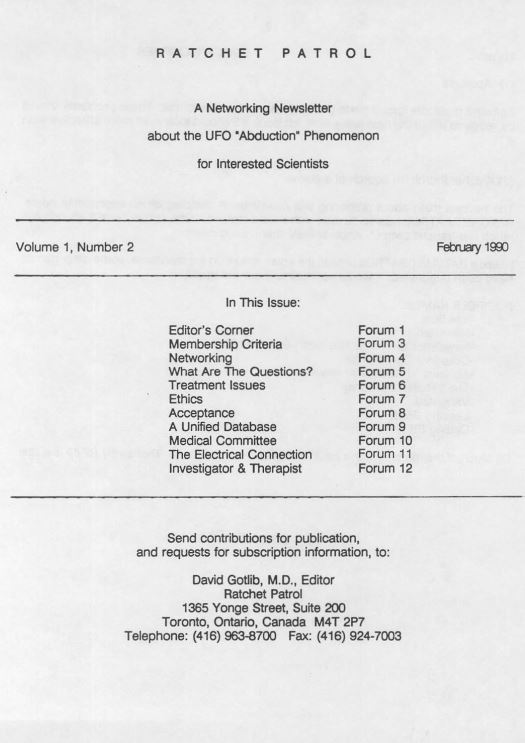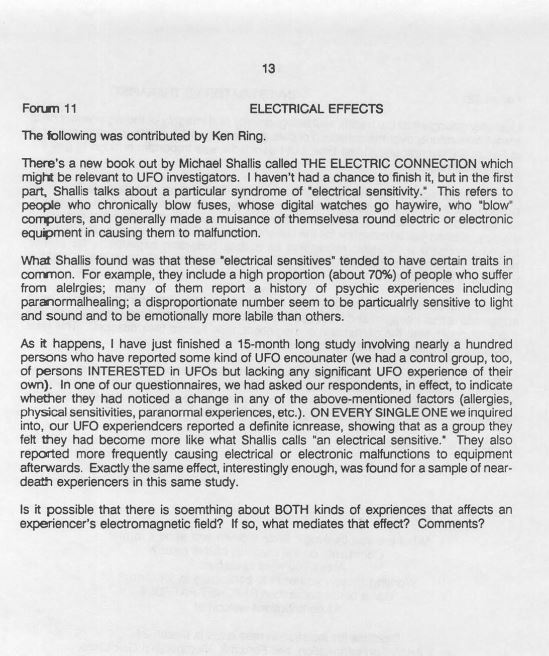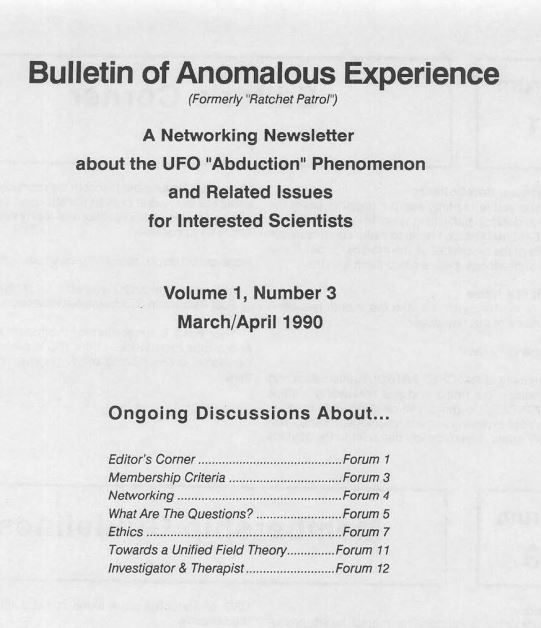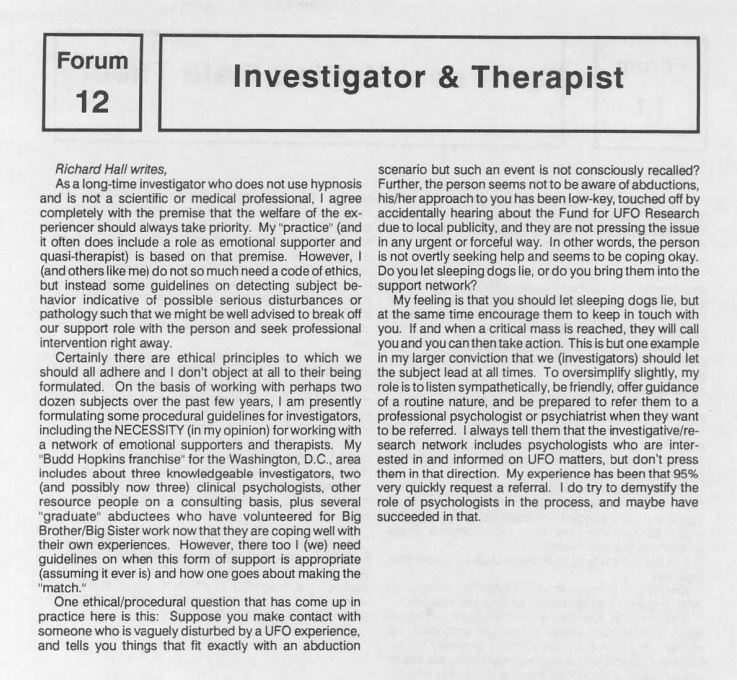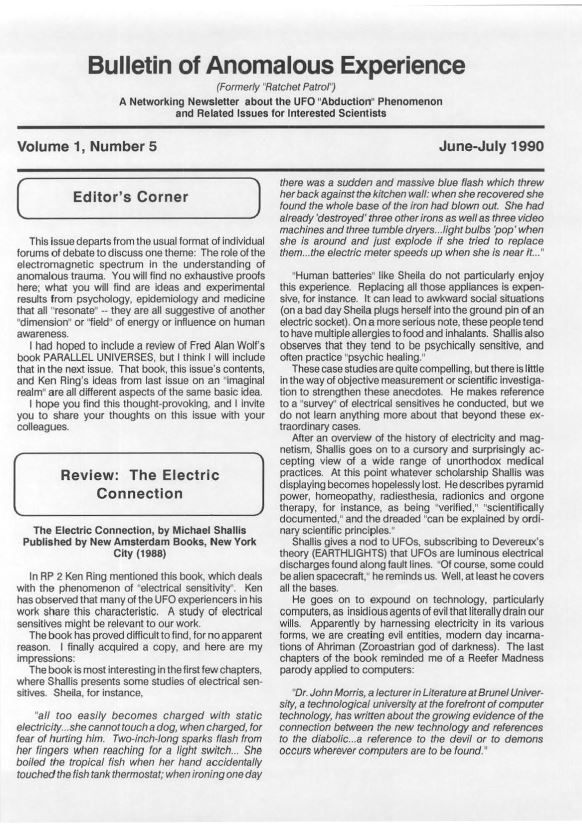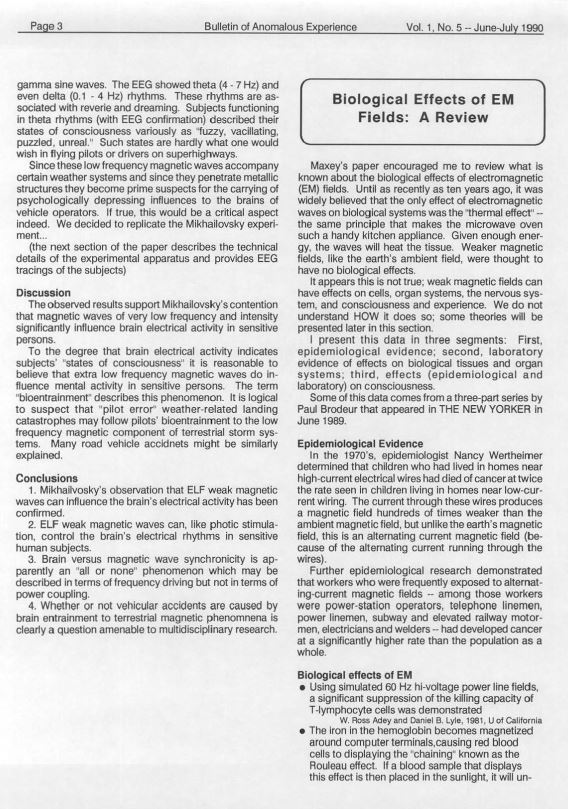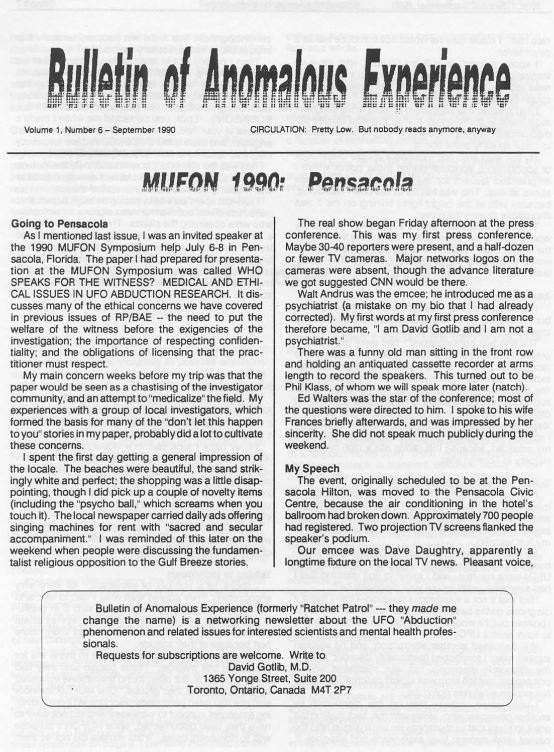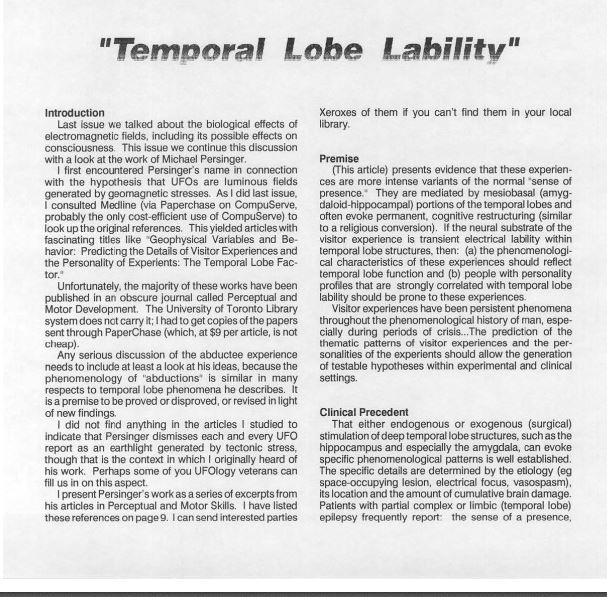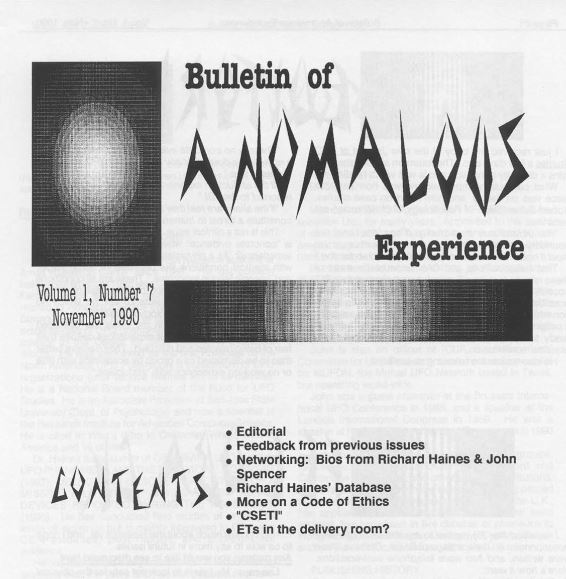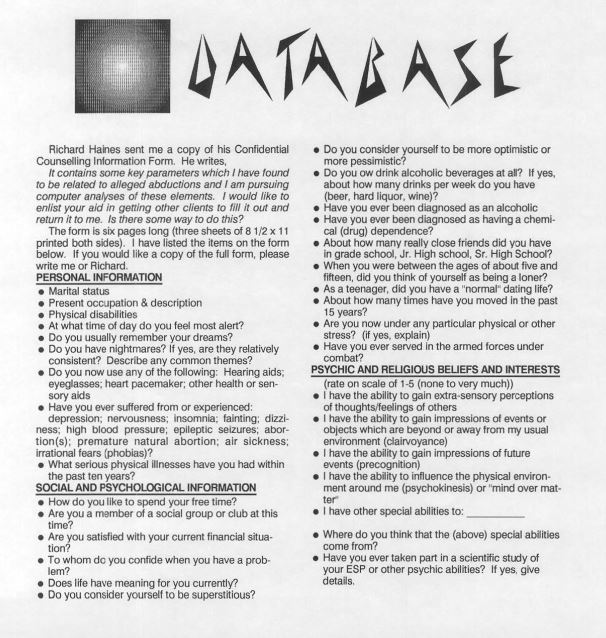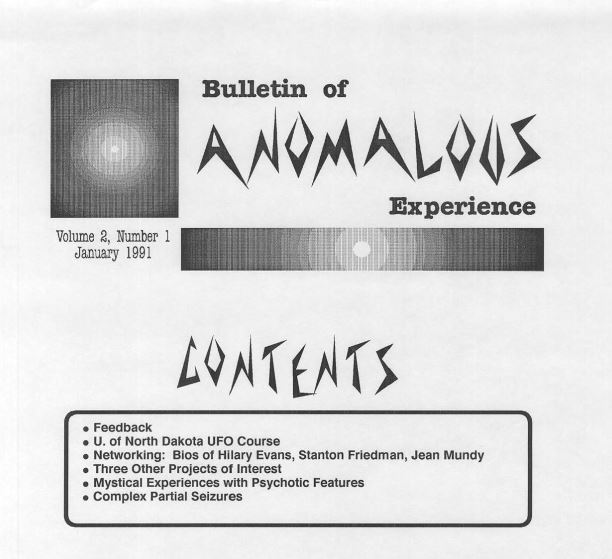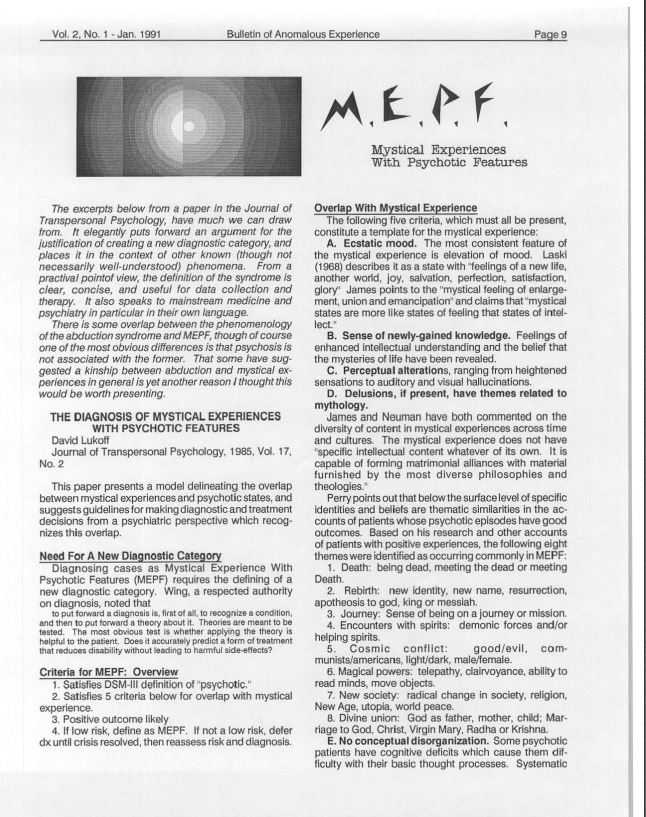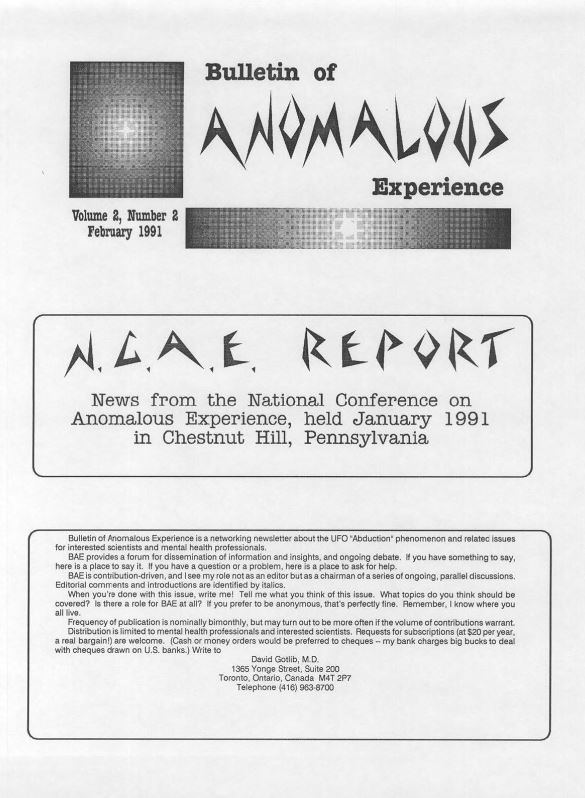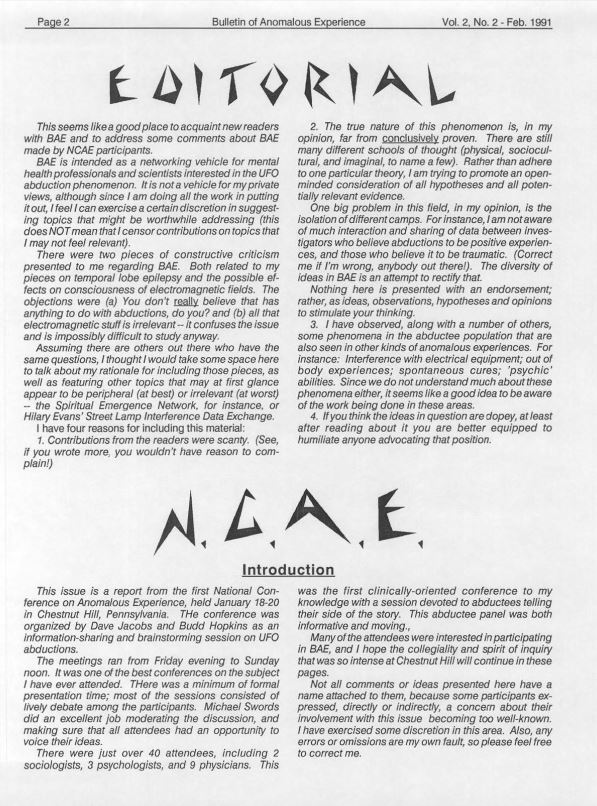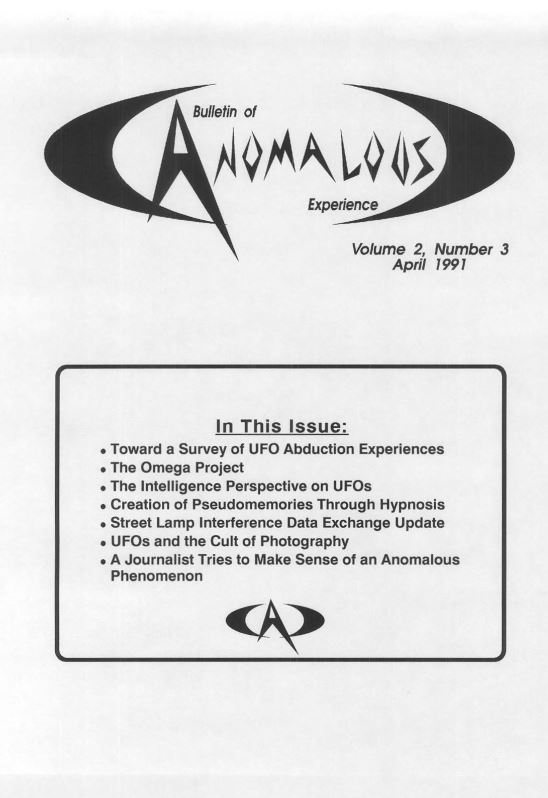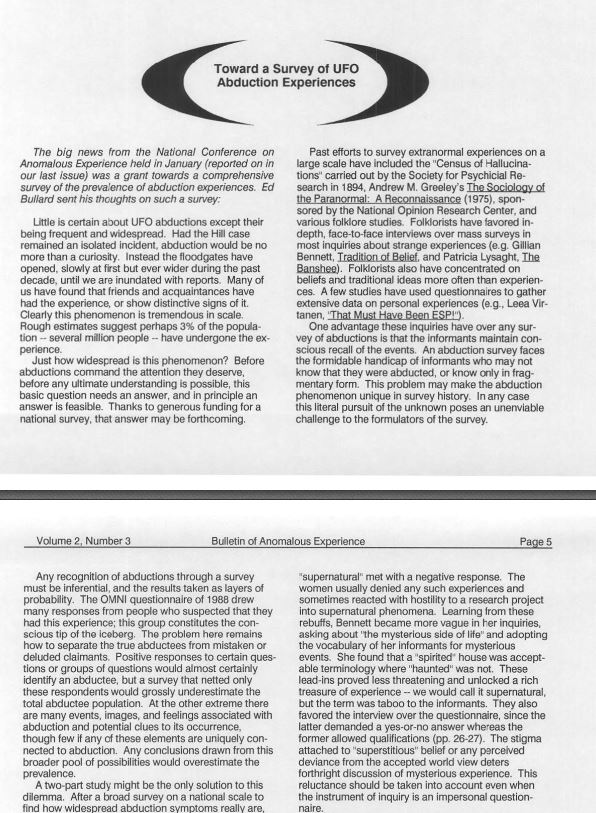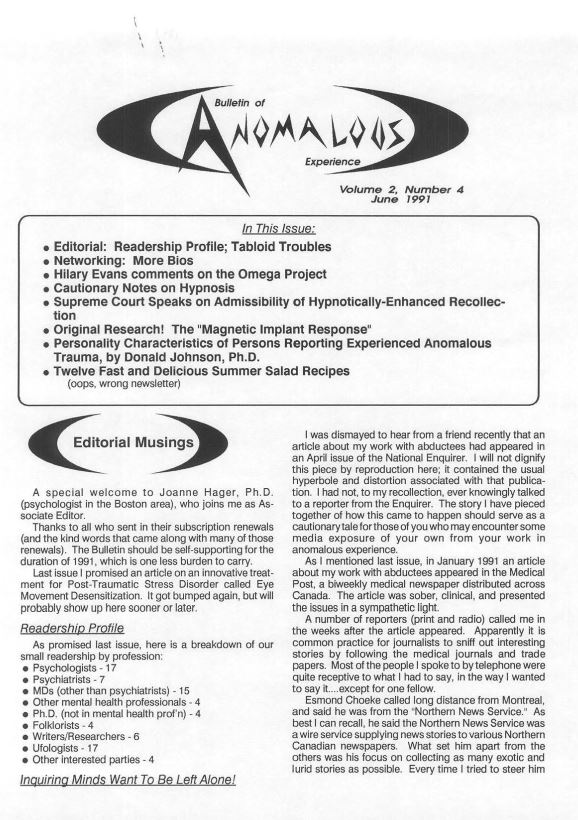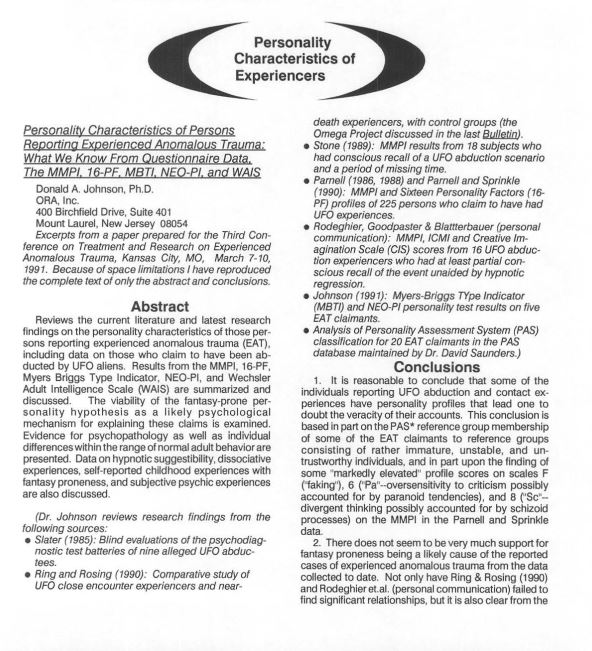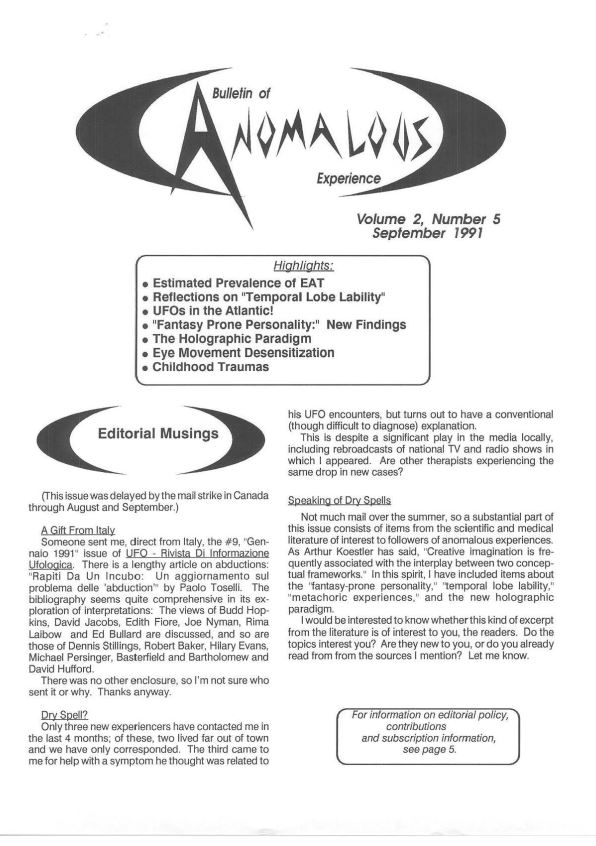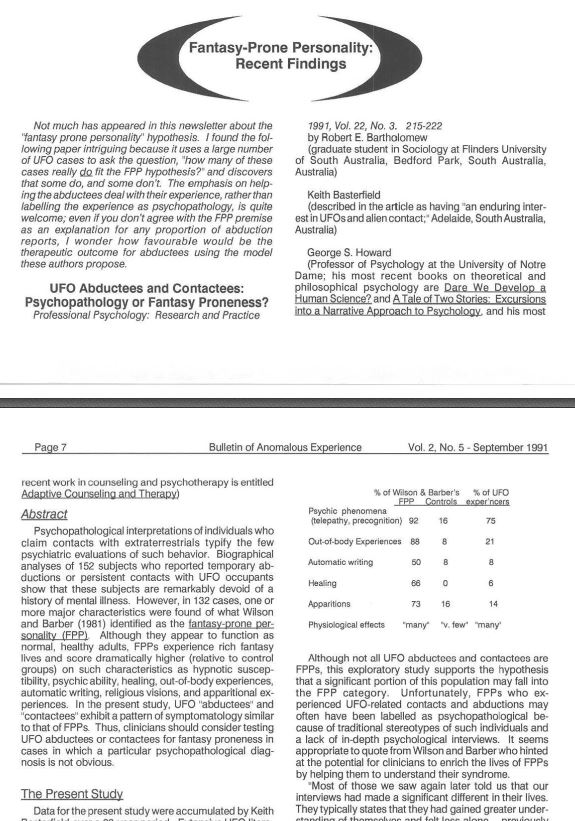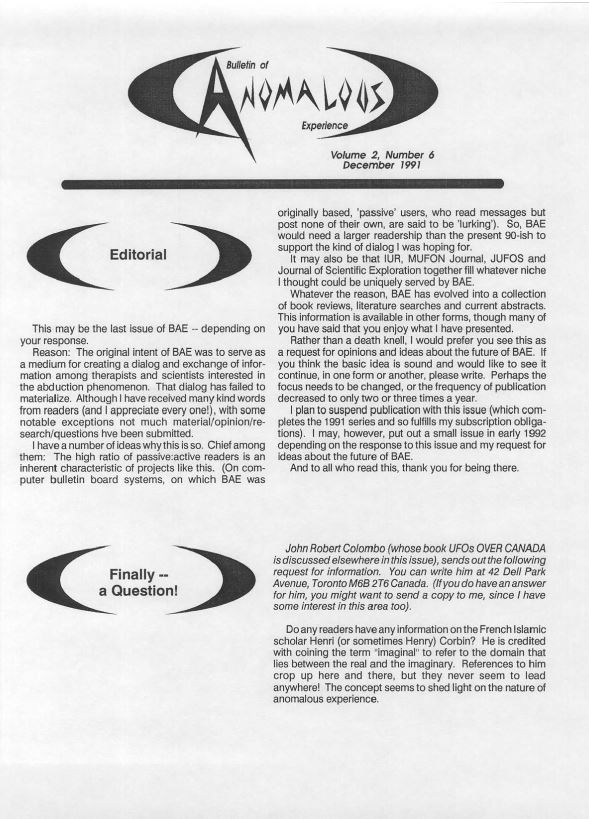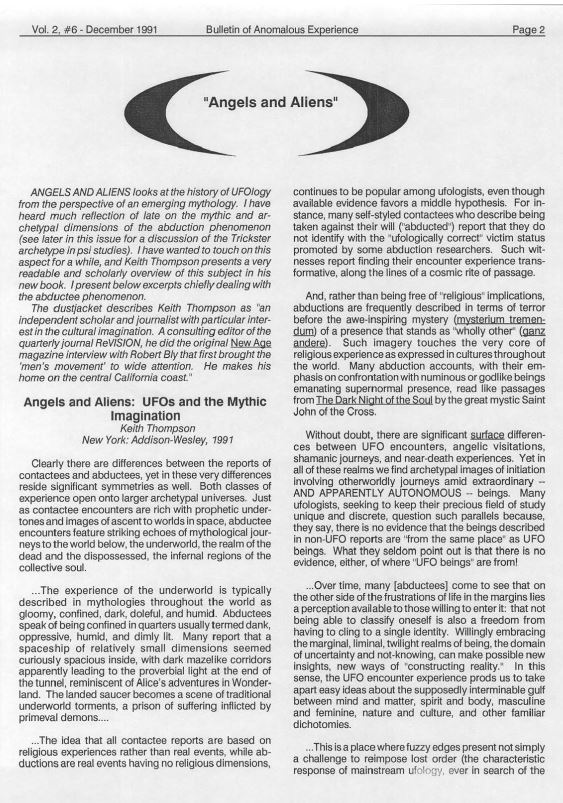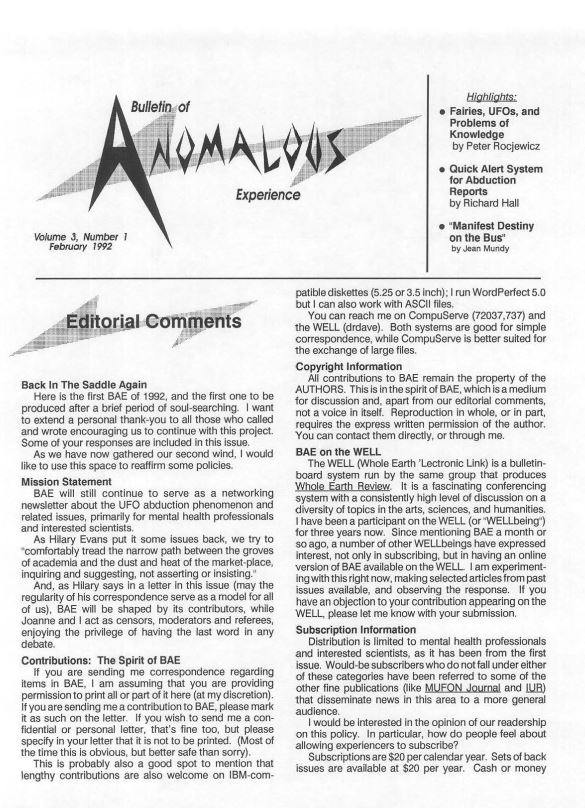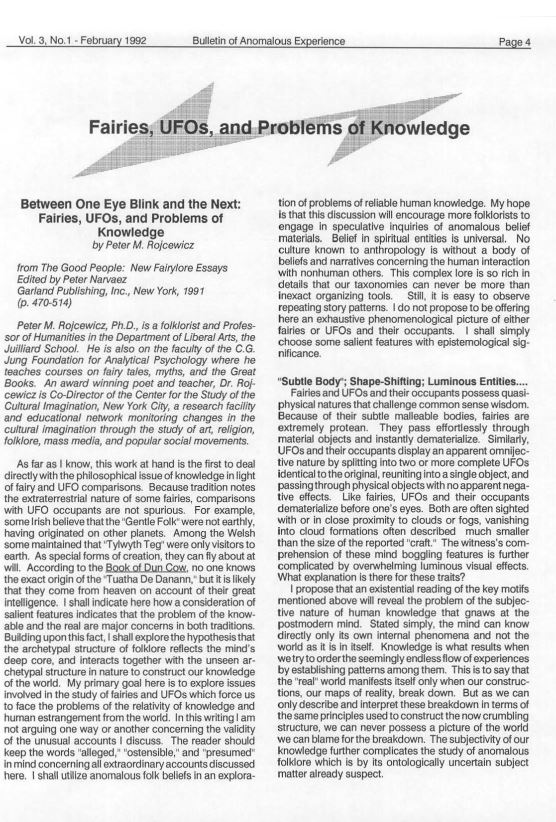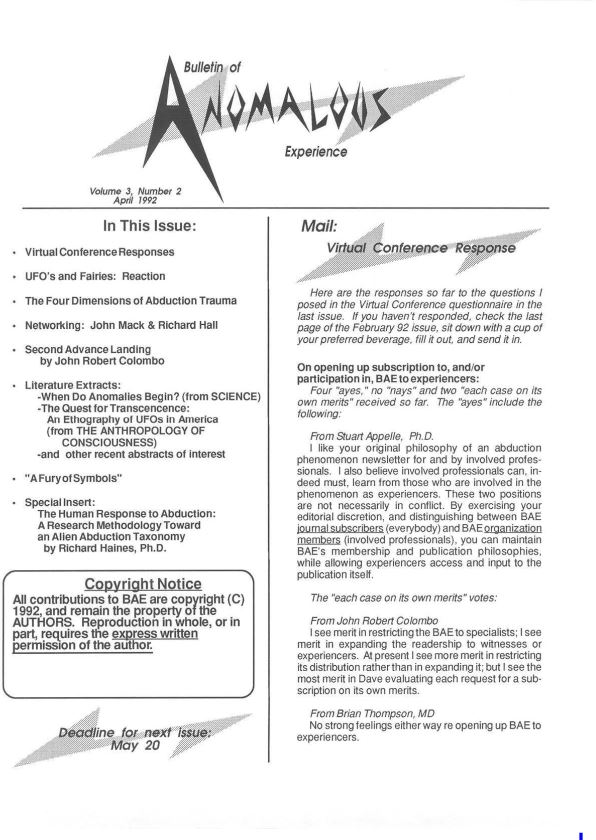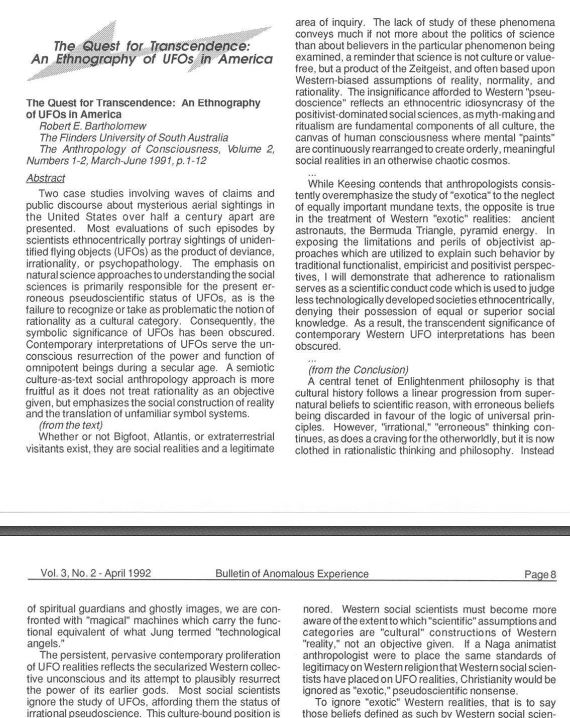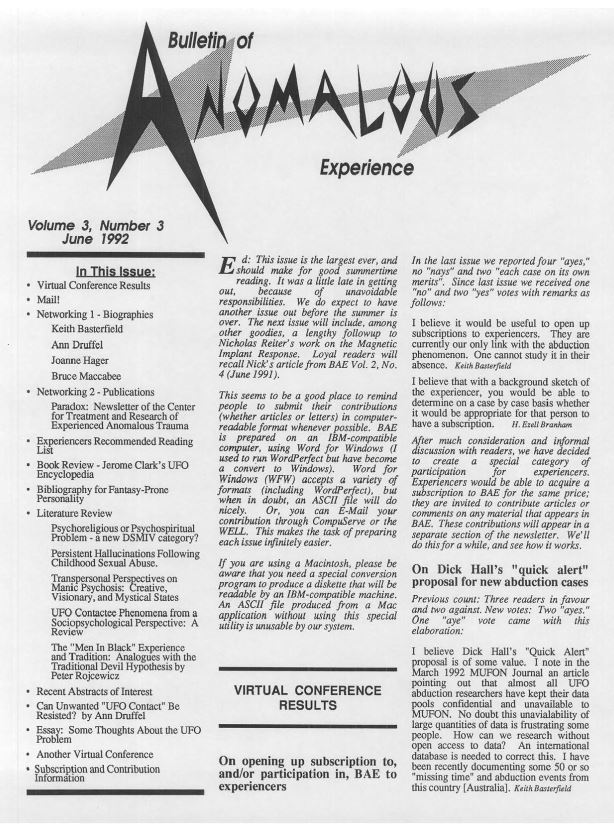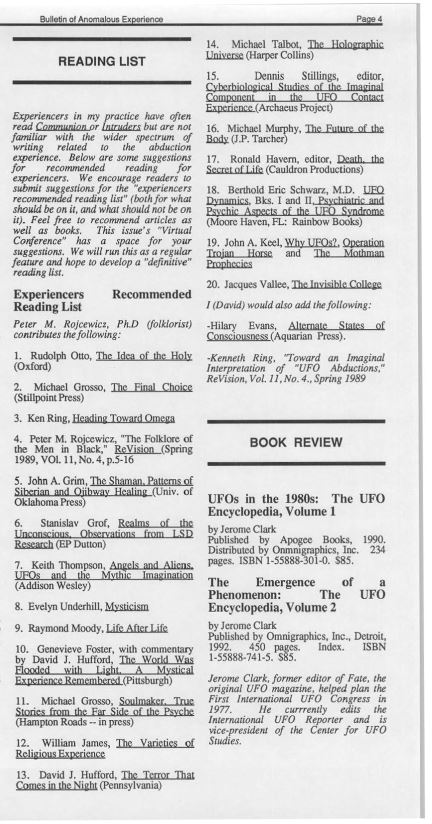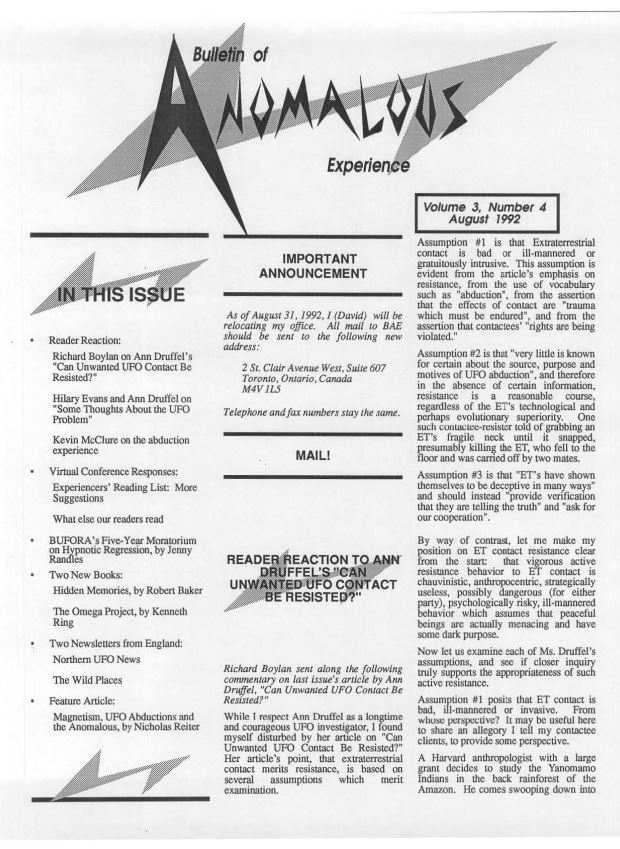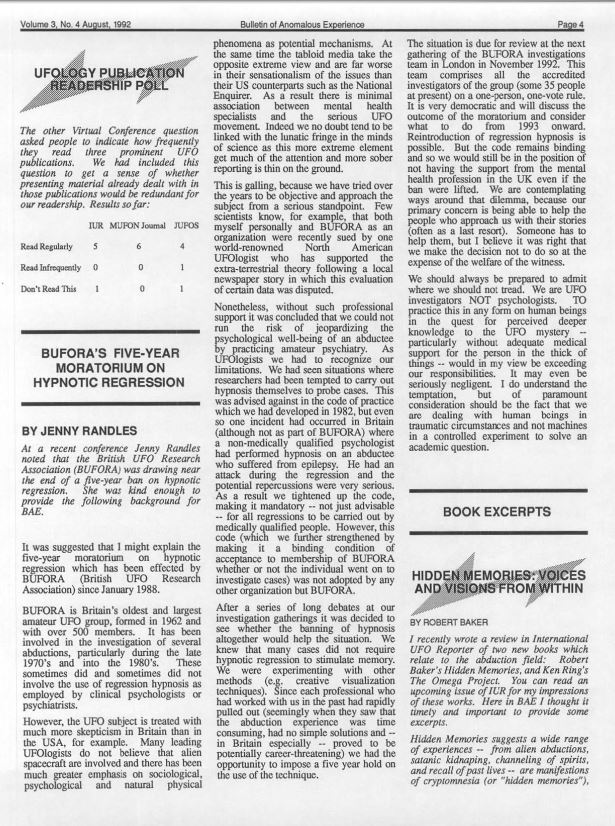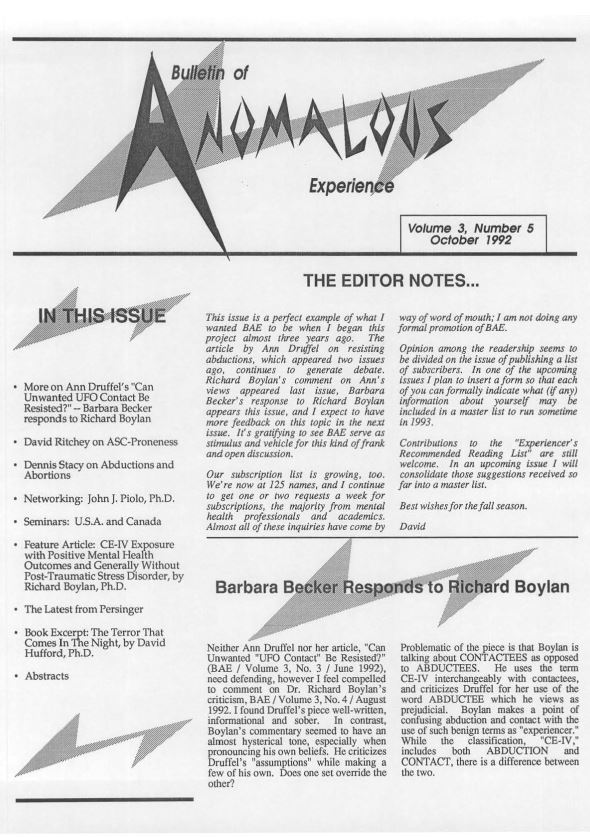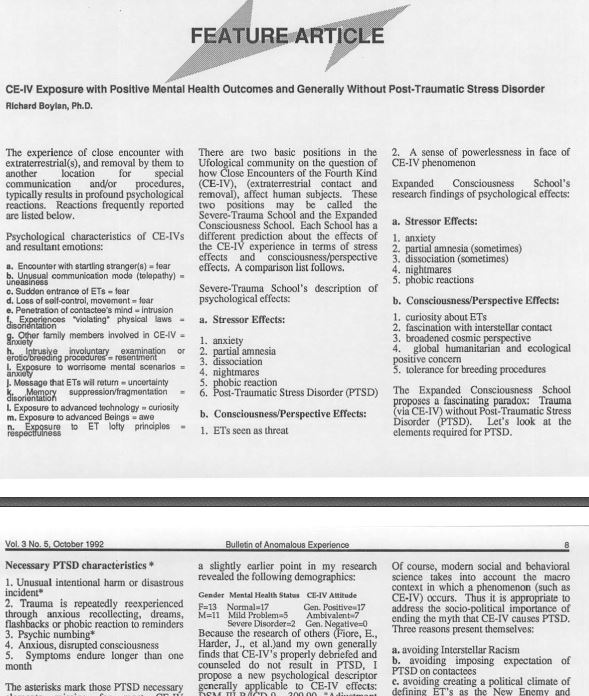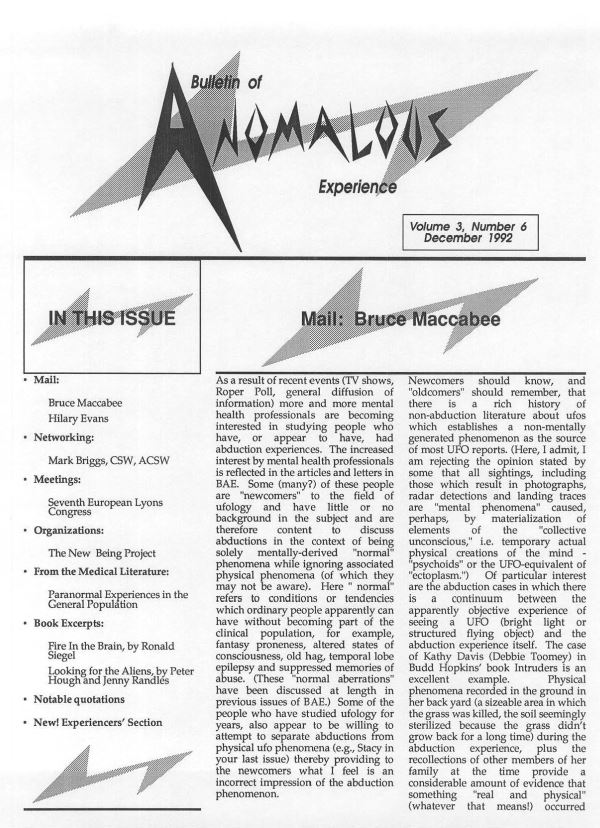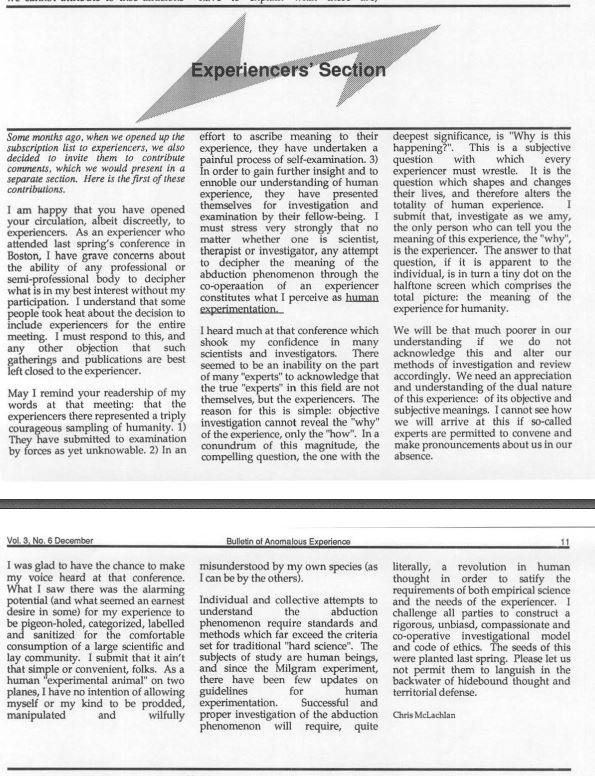It looks like you're using an Ad Blocker.
Please white-list or disable AboveTopSecret.com in your ad-blocking tool.
Thank you.
Some features of ATS will be disabled while you continue to use an ad-blocker.
RARE David Gotlib “Bulletin of Anomalous Experience” 1990-94 – Abductees, False Memories, etc
page: 1share:
Introduction
I am pleased to be able to make freely available online searchable PDF versions of all 31 issues of the “Bulletin of Anomalous Experience”, edited by David Gotlib (with his kind permission).
Dr David Gotlib is a Canadian psychiatrist. He edited the “Bulletin of Anomalous Experience”, which was circulated among mental health professionals and a network of interested UFO researchers from 1990 and 1994. The Bulletin focused on psychological, physiological and sociological issues relevant to ufological / abductee discussions e.g. False Memory Syndrome, hypnosis, Michael Persinger’s Tectonic Strain Hypothesis, Albert Budden’s work on electromagnetic pollution, folklore, myths, surveys, articles by Martin Kottmeyer, etc.
The Bulletin was aimed at therapists/scientists as well as ufologists, with articles, book reviews and commentaries on mainstream scientific literature potentially relevant to studies of abductees and experiencers.
The entire collection of searchable PDF versions of the Bulletin can be downloaded as a single zip file from the link below, or you can use this link or the links further below (with each issue illustrated with a sample page or two) to each indvidual issues in case you just want to specific issue. The Bulletin evolved significantly during the 5 years of its production, with an increasing number of insightful articles by ufologists and psychologists so I would recommend sampling an issue from the last two years (i.e. Volumes 4 and 5).
www.isaackoi.com...
An article by Jacques Vallee on his website refers to Dr David Gotlib’s “seminal work” and states that Dr Gotlib’s Bulletin of Anomalous Experience “has presented the most unbiased framework for a healthy debate about abductions but was frequently at variance with the ‘leaders’ of the field”
In advice that appears to have largely fallen on deaf years, ufologist Ed Stewart stated (back in 2000) that the Bulletin “should be consulted and referenced in any meaningful discussion of the topic”.
When I recently asked veteran Canadian ufologist Chris Rutkowski for his views on the most useful existing literature regarding persons reporting anomalous experiences (e.g. UFOs and abductions) he stated that “without question the best work in the field was by David Gotlib” and that David Gotlib “was easily the most scientific researcher in the field and worked with psychiatric and psychology professionals”. Highly-regarded British ufologist Jenny Randles also recently stated to me that the Bulletin “deserves broader recognition” and made the following comments about it:
It is a badly overlooked, but extremely useful resource covering aspects of the UFO debate all too often underappreciated. Whatever UFOs might eventually turn out to be they are events that get experienced by human beings through their senses and perceptions and usually whilst facing extremes of cognition and psychological stress. This makes research into these areas of fundamental importance to our understanding of what is going on. A UFO encounter is in the modern world the ultimate anomalous experience and ignoring what is being uncovered about this aspect of our selves undersells any investigation.
Bruce Maccabee stated (in the “Bulletin of Anomalous Experience” itself, in Volume 5 Issue 6) that he had “been ‘triple AAA’d’ (Amazed, Amused and occasionally Appalled)” by what he had read in the Bulletin, stating that “the discussions and reviews are great” but he had “been bothered by the fact that they almost always center on the mental aspects of the situation, as in ‘it’s all mental’”.
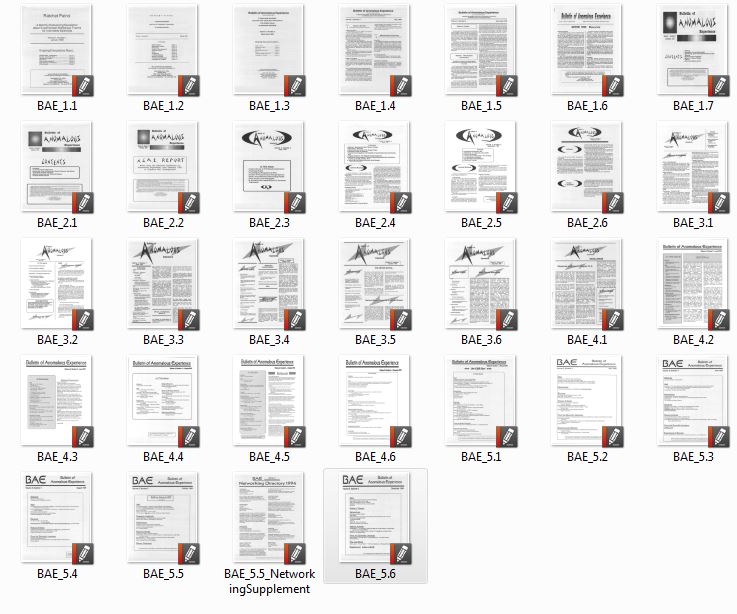
David Gotlib has stated, when he previously sold a collection of the Bulletin over a decade ago, that
Bulletin of Anomalous Experience (BAE for short), began in 1990 as a bimonthly forum for dialogues between for therapists and scientists interested in the UFO abduction experience, and paranormal experiences in general. BAE quickly evolved from a 8-10 page newsletter of opinions to a 20 to 36 page newsletter chock-full of original articles of opinion and research, detailed book reviews of new publications, reviews of mainstream scientific literature relevant to the study of anomalies, and personal introductions and brief bios of the participants. Experiencers had their own section to share their points of view and critique the material.
Hilary Evans, a frequent contributor and supporter, described BAE as comfortably treading the narrow path between the groves of academia and the dust and heat of the marketplace, inquiring and suggesting, not asserting or insisting. BAE sided neither with the skeptics nor the true believers; instead its guiding principle was the conviction that understanding the abduction experience was an eminently worthwhile scientific enterprise, and one way to accomplish this was to develop a synergy by inviting the most thoughtful and diverse thinkers in the field to participate in BAE¹s virtual roundtable.
As I review the five-year, 31-issue collection (over 500 pages in all) I still think it is unique in the field for its depth and breadth of study of the abduction experience, the range of opinions expressed (with a high degree of professionalism), and the regular inclusion of material from mainstream scientific journals were intended to help readers and researchers strengthen their knowledge base and critical faculties.
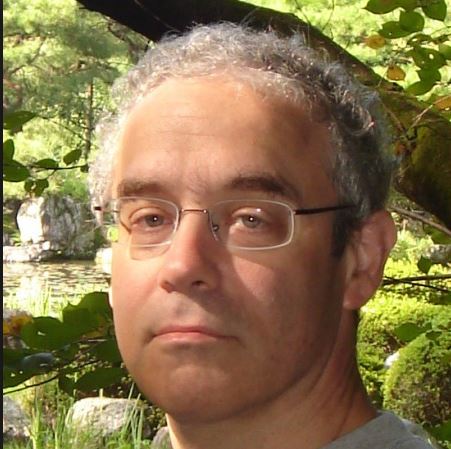
edit on 27-7-2015 by IsaacKoi because: (no reason given)
Bulletin of Anomalous Experience, Issue 1.4
Bulletin of Anomalous Experience, Issue 1.4
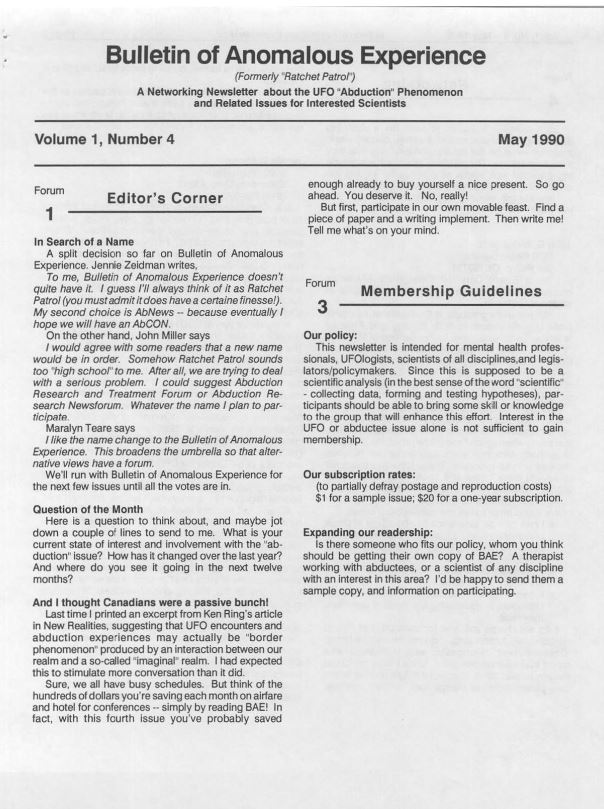
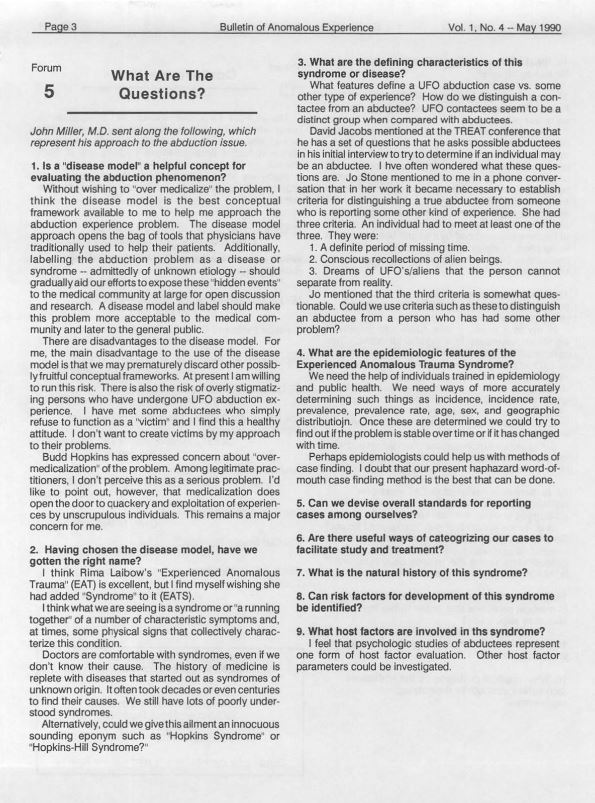
edit on 27-7-2015 by IsaacKoi because: (no reason given)
new topics
-
12-21-24 Usyk-Fury II
World Sports: 39 minutes ago -
Driving home for Christmas… fast!
General Entertainment: 4 hours ago -
My Retirement
General Chit Chat: 5 hours ago -
‘Something horrible’: Somerset pit reveals bronze age cannibalism
Ancient & Lost Civilizations: 6 hours ago -
Spiritual Solstice
Short Stories: 8 hours ago
top topics
-
My Retirement
General Chit Chat: 5 hours ago, 11 flags -
Spiritual Solstice
Short Stories: 8 hours ago, 5 flags -
‘Something horrible’: Somerset pit reveals bronze age cannibalism
Ancient & Lost Civilizations: 6 hours ago, 4 flags -
Driving home for Christmas… fast!
General Entertainment: 4 hours ago, 3 flags -
12-21-24 Usyk-Fury II
World Sports: 39 minutes ago, 1 flags
active topics
-
Have you noticed?? Post Election news coverage...
World War Three • 11 • : ADVISOR -
Spiritual Solstice
Short Stories • 5 • : JJproductions -
US Federal Funding set to Expire December 20th. Massive CR on the way.
Mainstream News • 72 • : marg6043 -
'Mass Casualty event' - Attack at Christmas market in Germany
Mainstream News • 118 • : xWorldxGonexMadx -
Salvatore Pais confirms science in MH370 videos are real during live stream
General Conspiracies • 247 • : Lazy88 -
My Retirement
General Chit Chat • 12 • : network dude -
Squirrels becoming predators
Fragile Earth • 37 • : Oldcarpy2 -
Mood Music Part VI
Music • 3754 • : SLAYER69 -
‘Something horrible’: Somerset pit reveals bronze age cannibalism
Ancient & Lost Civilizations • 4 • : Athetos -
12-21-24 Usyk-Fury II
World Sports • 0 • : Blueracer

